
Transcription
IMPACT
Wednesday
February 27, 2013
As someone struggling to rehabilitate myself, I often pause to consider the effect of my actions, not just past tense, but also present and future tense. At first, this was easier said than done, not because I didn't care, or take my recovery seriously, but because I was having a difficult time understanding the true impact of my actions on others. The more work I invested into my recovery, the more I began to understand, and it didn't take long before my eyes began to open, allowing me to see things in an entirely different perspective. The more I learned, the more ashamed I became, a burden which often came close to being unbearable, but I refused to give up. At the end of the day, whatever pain and devastation I was feeling was a mere pittance compared to the harm I caused others, and just as importantly, it was pain and destruction I brought upon myself.
It's impossible for me to state with any degree of certainty which of the lessons learned was the most important. In many cases, they became so intertwined, it became almost impossible to distinguish where one stopped and another began. I can, however, say that one of the most important was discovering that an action's impacts aren't always immediately apparent. Sometimes, they don't even begin to make an appearance for years to come, and when they do, they're often so far removed in time, the victim is completely unable to make the connection. Another aspect not often taken into consideration is the impact on those not directly involved. For example, friends and family members, not just of the victim, but also the perpetrator. They all end up suffering for my actions.
Perhaps the best example of delayed consequences is what happens when a child grows up in a physically abusive environment. Watching their mother and father exchange blows with each other plays hell with a child's psyche, particularly when witnessed during their formative years. Regardless of how much they disagree with it then and there, as they grow older, they usually go on to start displaying similar patterns of behavior. First, they start off by being verbally abusive, demeaning even, and if that behavior is allowed to go on unchecked, it's only a matter of time before they're using physical action instead of just words. This isn't because they're a bad, or even an evil person, but is instead because this is what they were taught by observations when growing up. Should they go on to have children of their own, they've successfully completed the circle of violence, not only carrying out acts of violence themselves, but teaching their children to do the same when they become adults.
This same philosophy holds true regardless of the type of abuse: physical, verbal, emotional, sexual, drug or alcohol. The child learns by observation, growing up to become what they witnessed most. Like many children before and after me, this is how I developed the morals and standards I had in place at the time I committed my crime, but like many adults who've come before and after me, I also need to go back and deal with the things that I witnessed and suffered as a child. In other words, I need to treat not only the problem, in this case, my criminal acts, but also the cause, or what it was that allowed me to cross that moral threshold in the first place.
Shawn L. Perrot CDCR# V-42461
CMC-East Cell# 6326
P.O. Box 8101
San Luis Obispo, CA 93409-8101
Other posts by this author
|
2020 aug 12
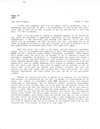
|
2020 aug 12
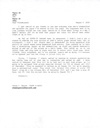
|
2020 may 30
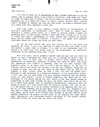
|
2020 may 30
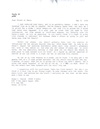
|
2020 may 30
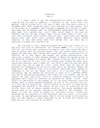
|
2020 may 24
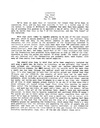
|
More... |
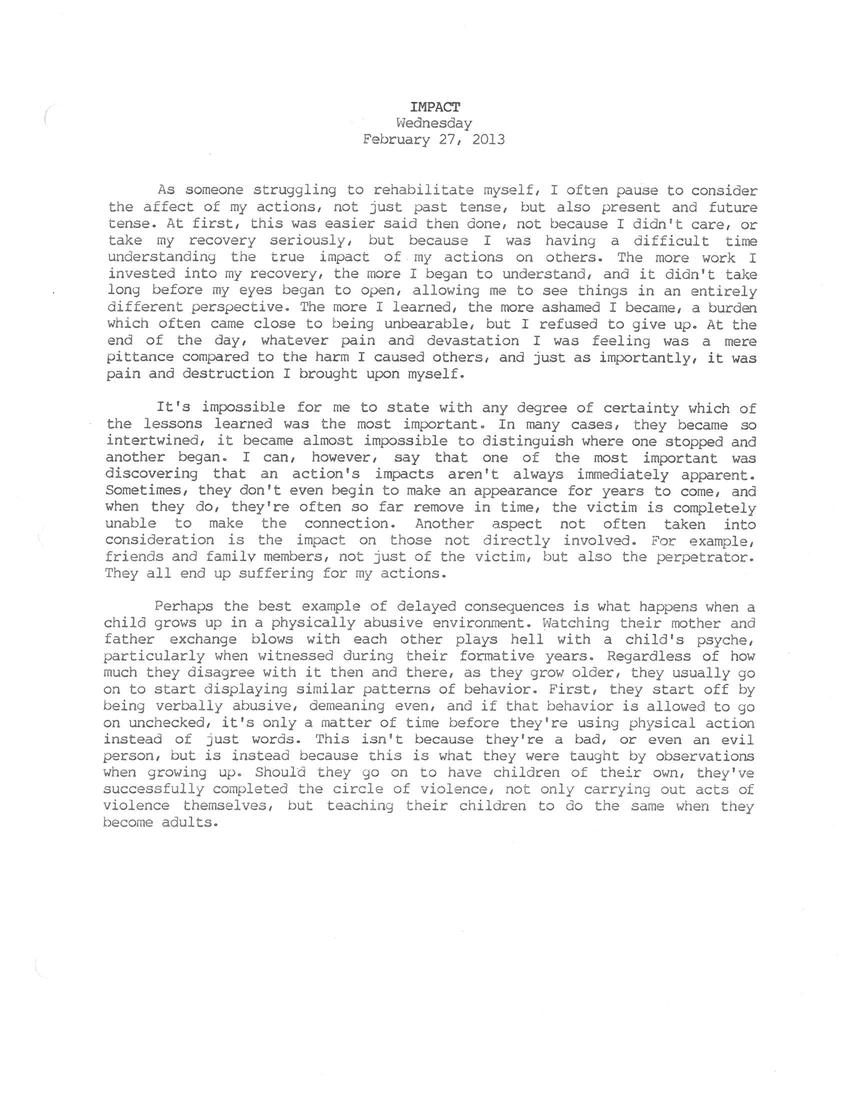
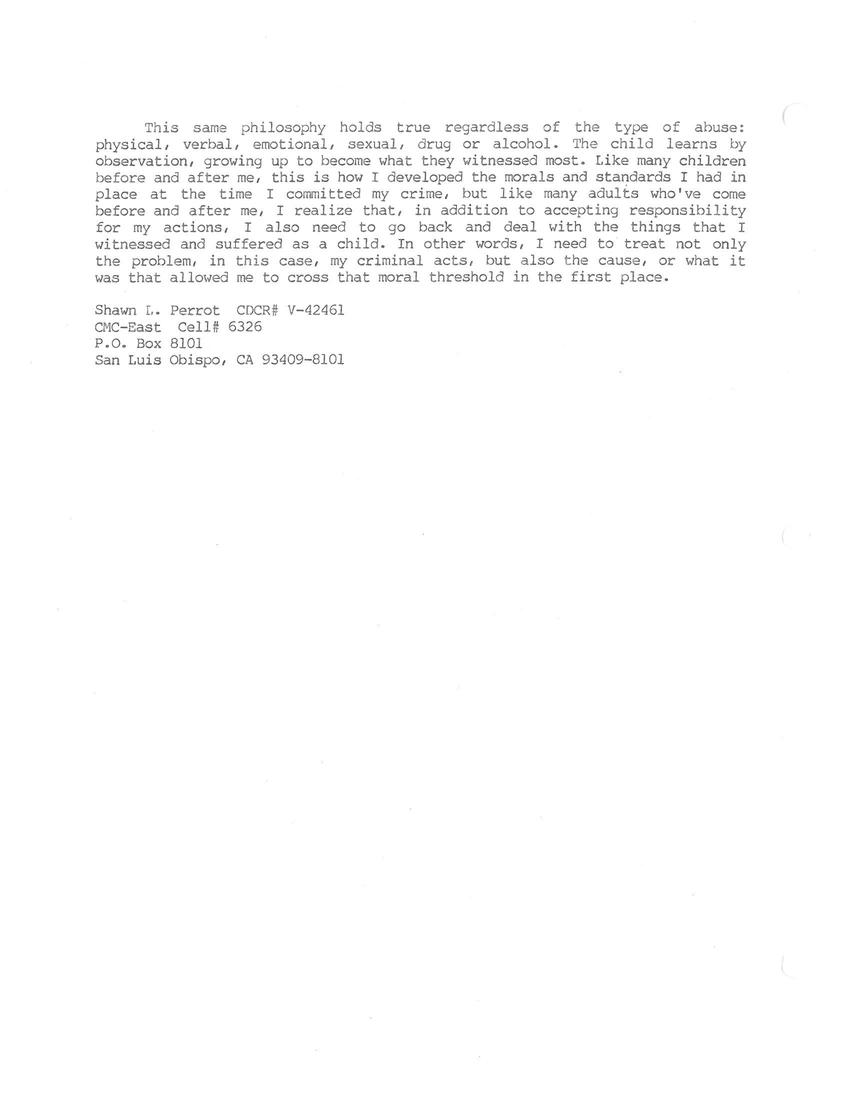

Replies